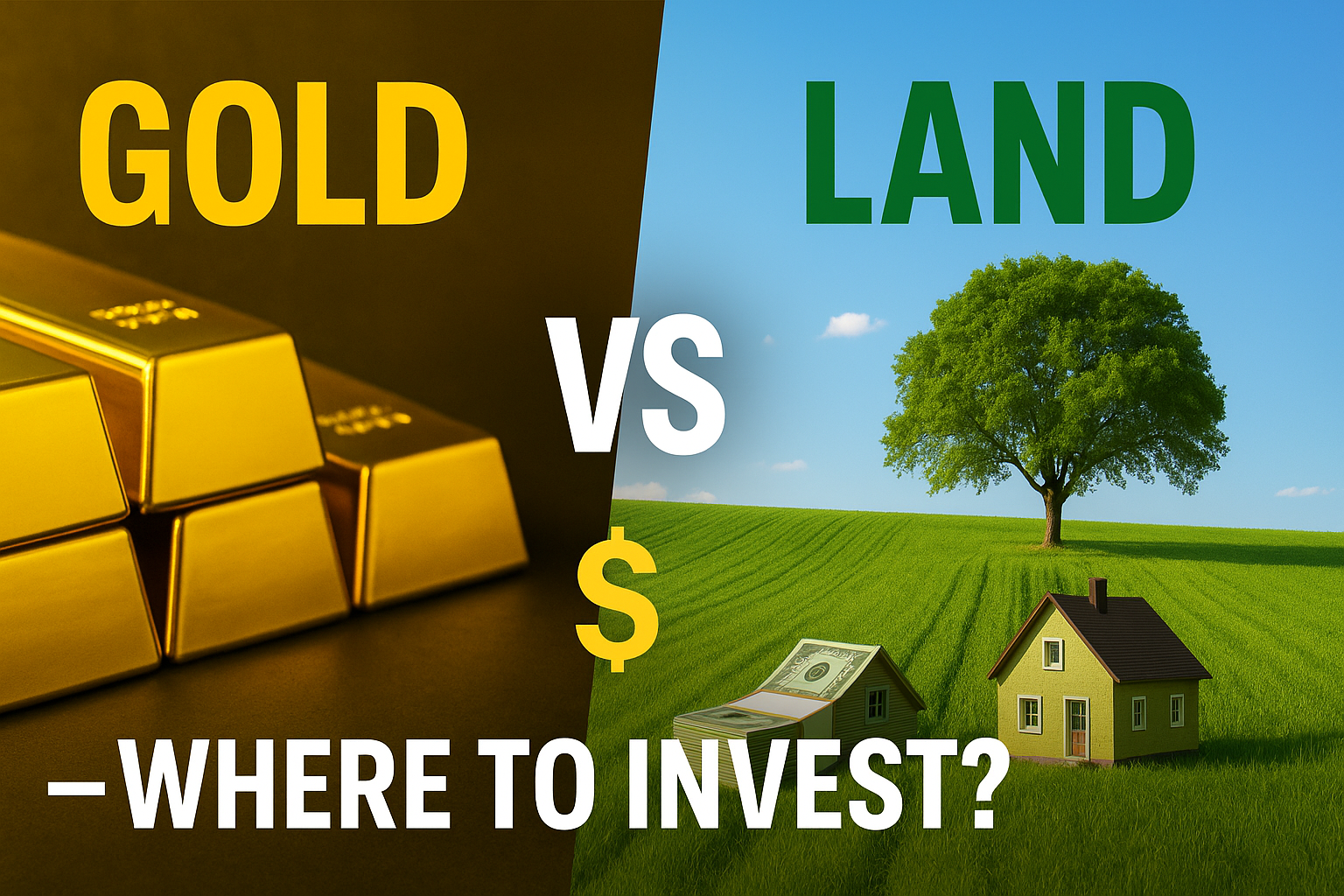In times of inflation, uncertainty, and volatile markets, one question often comes up among investors:
Is it better to invest in gold or in land?
Both are considered safe-haven assets, but they serve different purposes and fit different investment strategies.
In this article, we’ll break down the pros and cons of each — so you can decide which one fits your long-term goals best.
🪙 Why Gold Is Considered a Safe-Haven Investment
Gold has been used as a store of value for thousands of years. It’s trusted globally and tends to shine when markets are unstable.
It’s known for:
- Protecting against inflation
- Holding value during financial crises
- Offering liquidity and global acceptance
💬 My take:
Gold acts like a personal insurance policy. It doesn’t generate income, but it keeps your purchasing power safe when paper money loses value.
✅ Advantages of Gold:
- Highly liquid (easy to buy and sell)
- Accessible to small investors (grams, ETFs, funds)
- Portable and borderless
- Historically strong during economic and political crises
⚠️ Downsides:
- Doesn’t generate cash flow (no dividends or rent)
- Relies on price appreciation to make a profit
- May involve storage, security, or custody fees
🌱 Why Land Is Also a Powerful Long-Term Investment
Land is a tangible, finite asset — you can’t “print” more of it. And with the right location and use, it can turn into a strong source of income and long-term appreciation.
You can use land for:
- Farming or agriculture
- Timber or reforestation projects
- Rental or leasing
- Future development or subdivision
💬 My opinion:
Gold sits. Land can work for you — if used strategically, it becomes a productive asset, not just a store of value.
✅ Advantages of Land:
- Historically consistent appreciation
- Can generate income through leasing or production
- Inherently scarce and inflation-resistant
- Often increases in value with population growth
⚠️ Downsides:
- Low liquidity (can take months to sell)
- May require active management or partnerships
- Property taxes and maintenance costs
- Higher capital required for entry
🧠 Which One Is Better for You?
There’s no one-size-fits-all answer.
The real question is: Which one matches your current investment goals and lifestyle?
Choose Gold if you want:
✔️ Quick liquidity
✔️ An asset you can store or move easily
✔️ Short-term protection against volatility
→ Go for ETFs, gold-backed funds, or physical gold with proper custody.
Choose Land if you want:
✔️ Long-term appreciation
✔️ The ability to generate income
✔️ A tangible asset with practical use
→ Look for undervalued land in growth areas with strategic use potential.
✅ Final Thoughts
Gold and land don’t compete — they complement each other.
Gold protects. Land builds.
💬 My personal advice:
If you’re building a strong, diversified portfolio for the future, own both.
Let gold be your shield — and land, your long-term engine of wealth.




